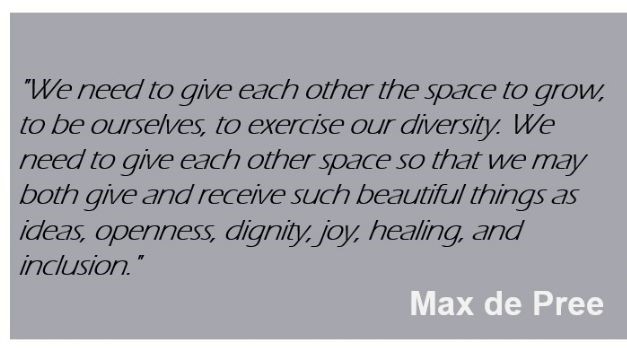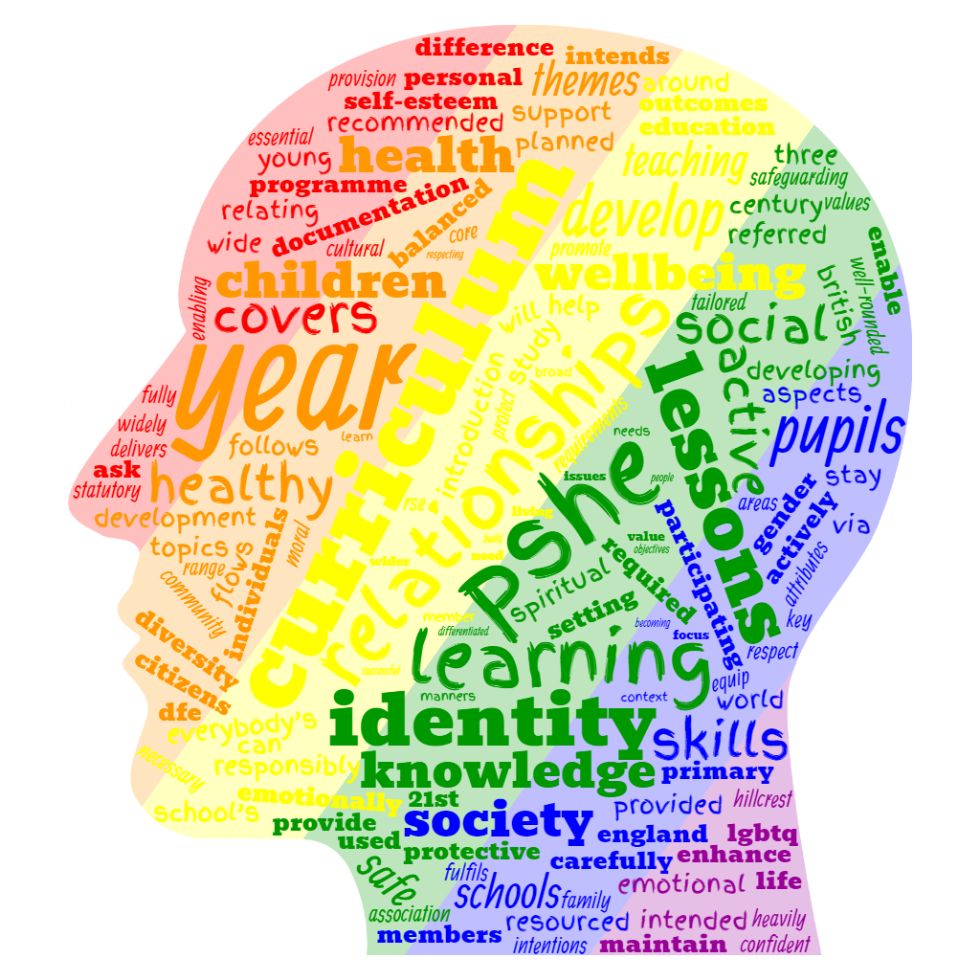Life Skills (PSHE & RSE)


Our Vision for LIFE SKILLS:
Our children are growing up in an ever-changing and uncertain world. Hillcrest's Personal, Social, Health & Economic Education (PSHE) and Relationships & Sex Education (RSE) aims to equip our young people with the life skills necessary to be a safe, emotionally healthy and successful member of the 21st Century.
As part of our commitment to teaching our pupils about the value of Democracy, they were given the opportunity to vote on a more relatable name for the subject via one of our Smart School Council sessions. The democratically selected name was "LIFE SKILLS".
Hillcrest's 5 Principles of LIFE SKILLS
At Hillcrest, each subject team has created 5 key principles, outlining what makes up quality teaching in each subject:
|
1. Kapow! Primary Scheme being used across Y1-Y6, with age-appropriate terminology being used and explained, to ensure progression across the school. |
|
|
2. Reinforcement of being a Telling School. |
|
|
3. Children showing respect to their peers and respect towards the people they may be discussing. |
|
|
4. Sessions value and prioritise discussions, which often are led by children, valuing the contributions by collecting key comments/thoughts in an online document. |
|
|
5. British Values constantly reinforced by lesson content and explicitly identified by adults and children using age-appropriate language. |
Click on the INTENT, IMPLEMENTATION and IMPACT bars below to discover why and how we teach Life Skills.

INTENT Statement for Life Skills
Hillcrest Primary School’s Life Skills curriculum is intended to equip our pupils with the life skills necessary to be a safe, emotionally healthy and successful member of the 21st Century, tailored each year to our pupils’ needs. It intends to develop well-rounded individuals via carefully planned, differentiated and resourced lessons that develop the knowledge, skills and attributes young people need to protect and enhance their wellbeing. These lessons will enable our pupils to learn how to stay safe, to build and maintain healthy relationships, becoming active citizens responsibly participating in society around them.
Our lessons focus heavily on British Values and we actively promote everybody’s value in society. This flows through various strands.
Our curriculum covers a wide range of the social and emotional aspects of learning, enabling children to develop their identity and self-esteem as active, confident members of their community. The themes and topics support social, moral, spiritual and cultural development and provide children with protective teaching on essential safeguarding issues, developing their knowledge of when and how they can ask for help.
Our teaching fully delivers the Learning Outcomes and Core Themes provided by the PSHE Association Programme of Study, which is widely used by schools in England and is recommended and referred to by the DfE in all key documentation relating to PSHE provision in schools. Our curriculum covers all of the required objectives and follows the three core areas of Health and Wellbeing, Relationships and Living in the Wider World. It fulfils the requirements of 2020 Statutory Relationships and Health Education, setting these learning intentions in the context of a broad and balanced PSHE curriculum.
IMPLEMENTATION Statement for Life Skills
Hillcrest Primary School’s Life Skills curriculum "PSHE and RSE" follows the Kapow! scheme of work in EYFS, Key Stage 1 and 2. It is designed to be taught in thematic units, which consist of six to eight lessons, each with supporting materials including Medium Term Plans, assessment opportunities, Progression Grids, Learning Journey Road Maps, quality video links, differentiated tasks and activities. These units are taught in a spiral curriculum that revisits each theme every year, developing the pupils’ recall of knowledge and taking understanding further. This spiral approach enables us to ensure that learning is appropriate for the age and stage of the child.
Lessons explore keywords, building a rich vocabulary to develop understanding.
The Kapow! Primary scheme is a whole school approach that consists of three areas of learning in EYFS: Reception (to match the EYFS Personal, social and emotional development prime area) and five areas of learning across Key stages 1 and 2.
EYFS:
● Self-regulation
● Building relationships
● Managing self
Key stage 1 and 2:
● Families and relationships
● Health and wellbeing
● Safety and the changing body
● Citizenship
● Economic wellbeing
Each area is revisited to allow children to build on prior learning. The lessons also
provide a progressive programme. The lessons are based upon the statutory requirements for Relationships and Health education, but where our lessons go beyond these requirements (primarily in the Citizenship and Economic wellbeing areas) they refer to the PSHE Association
Programme of Study which is recommended by the DfE. Sex education has been included in line with the DfE recommendations and is covered in Year 6 of our scheme. The scheme supports the requirements of the Equality Act through direct teaching, for example learning about different families, the negative effect of stereotypes and celebrating differences, in addition to the inclusion of diverse teaching resources throughout the lessons.
A range of teaching and learning activities are used and are based on good practice in teaching RSE/PSHE education to ensure that all children can access learning and make progress. In key stage 1 and 2, there is an introductory lesson at the start of each year group which provides the opportunity for children and teachers to negotiate ground rules for the lessons. These introductory lessons can then be referred to throughout the year to help create a safe environment. All lessons include ideas for differentiation to stretch the most able learners and give additional support to those who need it. Many lessons, stories, scenarios, and video clips provide the opportunity for children to engage in real life and current topics in a safe and structured way.
Role-play activities are also included to help children play out scenarios that they may find themselves in. There are meaningful opportunities for cross-curricular learning, in particular with
Computing for online safety and Science for growing, nutrition, teeth, diet and lifestyle. The scheme provides consistent messages throughout the age ranges including how and where to access help. The role of parents and carers is recognised, and guidance is provided to assist
schools on how to work with them and include them in their children’s learning. In addition to the lessons, there is a suite of eight Q&A videos for teachers, featuring experts from various fields, covering the key areas: Families, Friendships, Healthy and safe relationships, Digital safety and The changing adolescent body.
Progression and content resources are shared with parents via our website, identifying the topics covered.
Assessment for learning opportunities are built into each lesson and enable self-evaluation and reflective learning, allowing teachers to evaluate and assess progress.
The school has created an online document for teachers to capture key point and discussion point from each lesson. This allows progress to be recorded and tracked.
IMPACT Statement for Life Skills
Hillcrest Primary School provides pupils with an effective curriculum for wellbeing, safety and acceptance of self and others.
Pupils are enabled to:
-
develop the vocabulary and confidence needed to clearly articulate their thoughts and feelings in a climate of openness, trust and respect, and know when and how they can seek the support of others.
-
apply their understanding of society to their everyday interactions, from the classroom to the wider community of which they are a part.
-
be part of a community that supports the active development of a school culture that prioritises physical and mental health and wellbeing.
-
evaluate and understand their own wellbeing needs, practise self-care and contribute positively to the wellbeing of those around them.
High quality PSHE and RSE has a positive impact on the whole child, including their academic development and progress, by lessening social and emotional barriers to learning and building confidence and self-esteem. Evidence suggests that high quality PSHE and RSE education also helps disadvantaged and vulnerable children achieve more by raising their aspirations and co-ordination, empowering them with skills to overcome barriers they face.
The Life Skills curriculum ensures that all children are able to develop the knowledge, skills and attributes they need to succeed at school and in the wider world.
Each lesson within Kapow Primary’s scheme features assessment guidance, helping teachers to identify whether pupils have met, exceeded, or failed to meet the desired learning intentions for that lesson. Each unit of lessons comes with an Assessment quiz and Knowledge catcher. The
quiz contains 10 questions, nine of which are multiple-choice and can be used either at the end of the unit or at both the start and the end to help measure progress and identify any gaps in learning. The Knowledge catchers list some of the lesson titles in mind-map or table format and can be used at the start of a unit to see what the children already know and to inform planning, and then pupils can revisit the same version of the Knowledge catcher at the end of the unit to add what else they now know, further demonstrating their progression in learning.
Once taught the full scheme, children will have met the objectives set out within the Relationships and Health Education statutory guidance and can utilise their learning within their daily lives, from dealing with friendship issues to resilience to making healthy choices and knowing where and how to get help when needed.
Explore the blue banners below to find out more about what specific themes we teach in PSHE and RSE and how these themes are revisited, recalled and expanded upon as the children journey through the school.

RSE (Lifeskills) parent guidance: Breakdown by year group
There are several themes that are repeated throughout the school as part of our spiral curriculum. Please see the Parent Guidance document below to see a breakdown of each year group.
The document outlines:
- How our scheme is structured
- The statutory requirements for each year group
- How RSE is taught in lessons
- Approaches to puberty and human reproduction
- Tips for parents to support their child at home
Please note that we tailor our PSHE and RSE curriculum to the needs of pupils.
Progression for Life Skills
Each of our PSHE and RSE themes build upon the learning that has come before, preparing our pupils for what they will learn in the future. We have various Progression documents, which can be found below.





